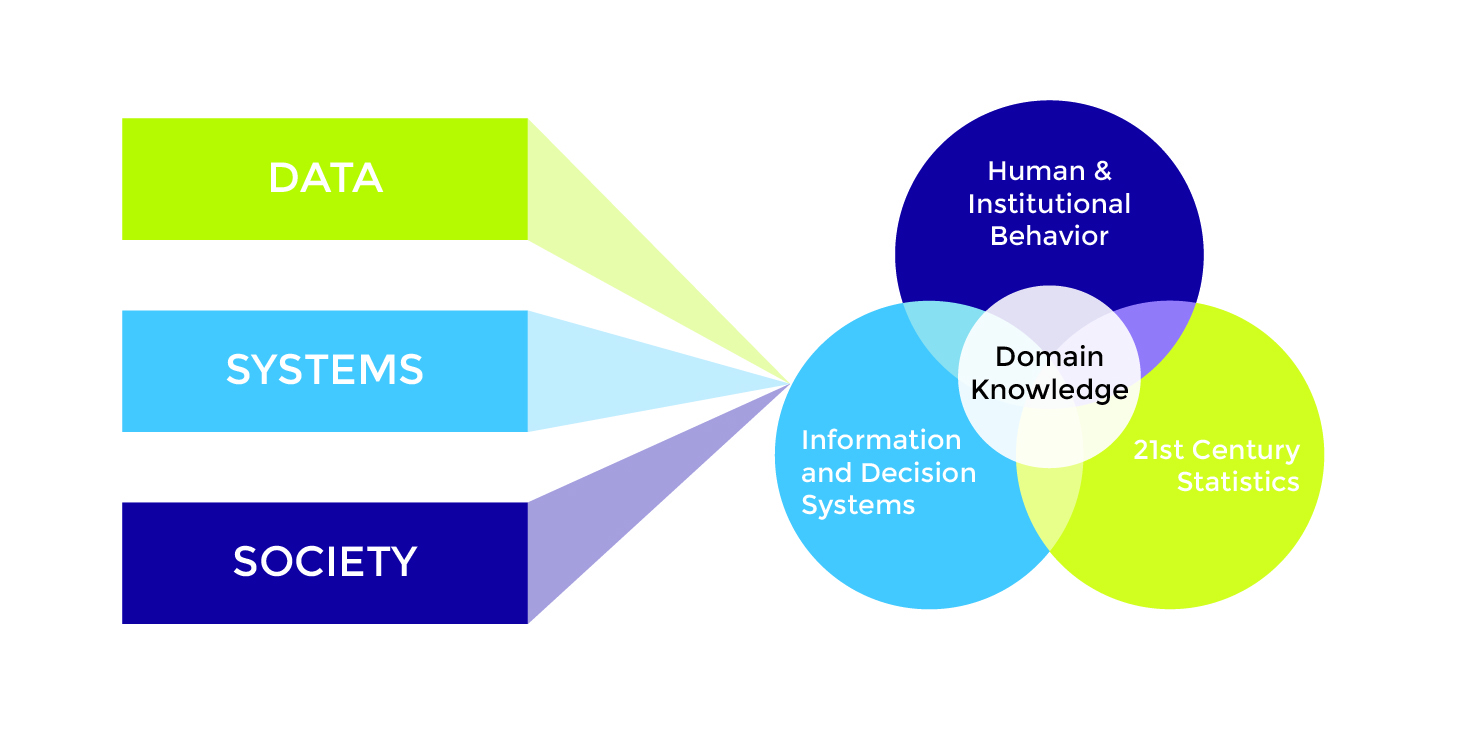The mission of IDSS is to advance education and research in state-of-the-art analytical methods in information and decision systems, statistics and data science, and the social sciences, and to apply these methods to address complex societal challenges in a diverse set of areas such as finance, energy systems, urbanization, social networks, and health.
Technology advances in areas such as smart sensors, big data, communications, computing, and social networking are rapidly scaling the size and complexity of interconnected systems and networks, and at the same time are generating masses of data that can lead to new insights and understanding. Research at IDSS aims to understand and analyze data from across these systems, which present unique and substantial challenges due to scale, complexity, and the difficulties of extracting clear, actionable insights.
Our ability to understand data and develop models across complex, interconnected systems is at the core of our ability to uncover new insights and solutions.

IDSS offers academic programs, some via the Statistics and Data Science Center (SDSC):
- Doctoral Program in Social and Engineering Systems (SES)
- Technology and Policy Program (TPP)
- Undergraduate Minor in Statistics and Data Science (via SDSC)
- Interdisciplinary Doctoral Program in Statistics (via SDSC)
IDSS has also developed online education programs including:
- MicroMasters in Statistics and Data Science (MITx)
- Data Science and Machine Learning: Making Data-Driven Decisions (in collaboration with Great Learning)
The Sociotechnical Systems Research Center (SSRC) is an interdisciplinary research center that works with MIT faculty and researchers, primarily those affiliated with IDSS, who focus on the study of complex systems.
As part of the Schwarzman College of Computing, IDSS spans all five schools at MIT, embracing the collision and synthesis of ideas and methods from analytical disciplines including statistics, data science, information theory and inference, systems and control theory, optimization, economics, human and social behavior, and network science. These disciplines are relevant both for understanding complex systems, and for presenting design principles and architectures that allow for the systems’ quantification and management. IDSS seeks to integrate these areas—fostering new collaborations, introducing new paradigms and abstractions, and utilizing the power of data to address societal challenges.
IDSS greatly values diversity in and inclusion of our students, faculty, and staff. The range of cultures, backgrounds, perspectives, and experiences of the individuals within IDSS all contribute to our ability to live out our mission of tackling major societal problems using innovative, holistic, data-driven approaches. Likewise, as a unit focused on improving society, we care deeply about the overall well-being of our students—including their mental and physical health.



